YOUTH FORUM FOR MENTAL HEALTH
EVALUATION REPORT


EVALUATION REPORT

The forum aimed to empower young mental health advocates to guide national mental health advocacy and awareness work while enhancing their voices, advocacy skills, capacity, and mental health knowledge. Fourteen candidates from the Western Cape and Gauteng, who were dedicated to mental health advocacy and driving lasting change in South Africa, participated in a six-month virtual programme. The forum integrated professional insights, individual development opportunities, advocacy training, and practical awareness campaigns.

September 2023 - March 2024
6-month virtual programme
Open to young people aged 18-24 from Western Cape or Gauteng 14 candidates selected 8-10-hour commitment per month Youth-led initiative 5 modes of learning
InSouthAfrica,youngpeoplehavehistoricallybeenleftoutof crucialmentalhealthpolicydiscussions.Organisationslikethe SAFederationforMentalHealth(SAFMH)playavitalrolein addressingthisbyfindingnewwaystoinvolveyoungpeoplein traditionaladvocacysettings,therebyenhancingyouth representationandempowerment.
Weeklyonline90-minutemeetings to develop knowledge and insights for mental health advocacy and awareness in South Africa. The meetings included guest speakers, practical workshops and discussions.
Thematic small groups allowed for targetedgroup work and forum members to focus on special areas of interest. In their thematic groups, members developed practical advocacy tools and awareness materials.
Optional one-on-one mentoring with SAFMH programmes staff to help members developskills tailoredtotheirlearningneeds to enhance their mental health advocacy and awareness journeys.

Forum members received R1,000seedfunding to run physical, virtual or hybrid mental health awareness campaigns in their communities in February and March 2024 based on a topic of their choice.
Peer support for forum members to provide each other with strategicandmoralsupport, especially in the development of mental health awareness campaigns.
The purpose of this evaluation is twofold:
Obtain learnings that can inform the implementation of the pilot youth forum and future iterations. Understand how participating in the forum impacted on members.
Three key questions guided the evaluation:
How was the forum implemented? What was the experience of participants in the forum? In what ways did the forum impact participants?
Key Question
Reports of programme components as per workplan developed in the planning phase
How was the forum implemented?
What was the experience and benefits of members in the forum?
Attendance and reasons for nonattendance
Adaptations made to programme
Participant feedback (on meeting content and structure)
Participant feedback on how the forum could be improved
Method/Source
Participant sharing on what being a part of this forum has meant to them
When collected
Notes from weekly review meetings Weekly
Attendance Sheets Weekly
Notes from weekly review meetings Weekly
Anonymous online surveys Every meeting
Anonymous online surveys and inperson group discussions
Anonymous online surveys and group discussions
December 2023 & March 2024
December 2023 & March 2024
Overall, the forum was deemed to feasible and acceptable by memb
Feasibility was assessed through attendance, retention, participatio and completion of take-home tas
Acceptability was assessed throug behaviour (retention), affect (feelin and cognition (perception) of the forum informed by weekly anonym online surveys.
A 92% retention rate was achieve the end of the project (13/14 mem completed the forum). One forum member could not continue with forum as they obtained permanen employment in 2024.
There was high fidelity to the orig weekly meeting programme, with one session being altered over the months. This was to replace a reca session in January 2024 with a planning session for the forum's fu
All modes of learning were utilised throughout the project's lifespan.
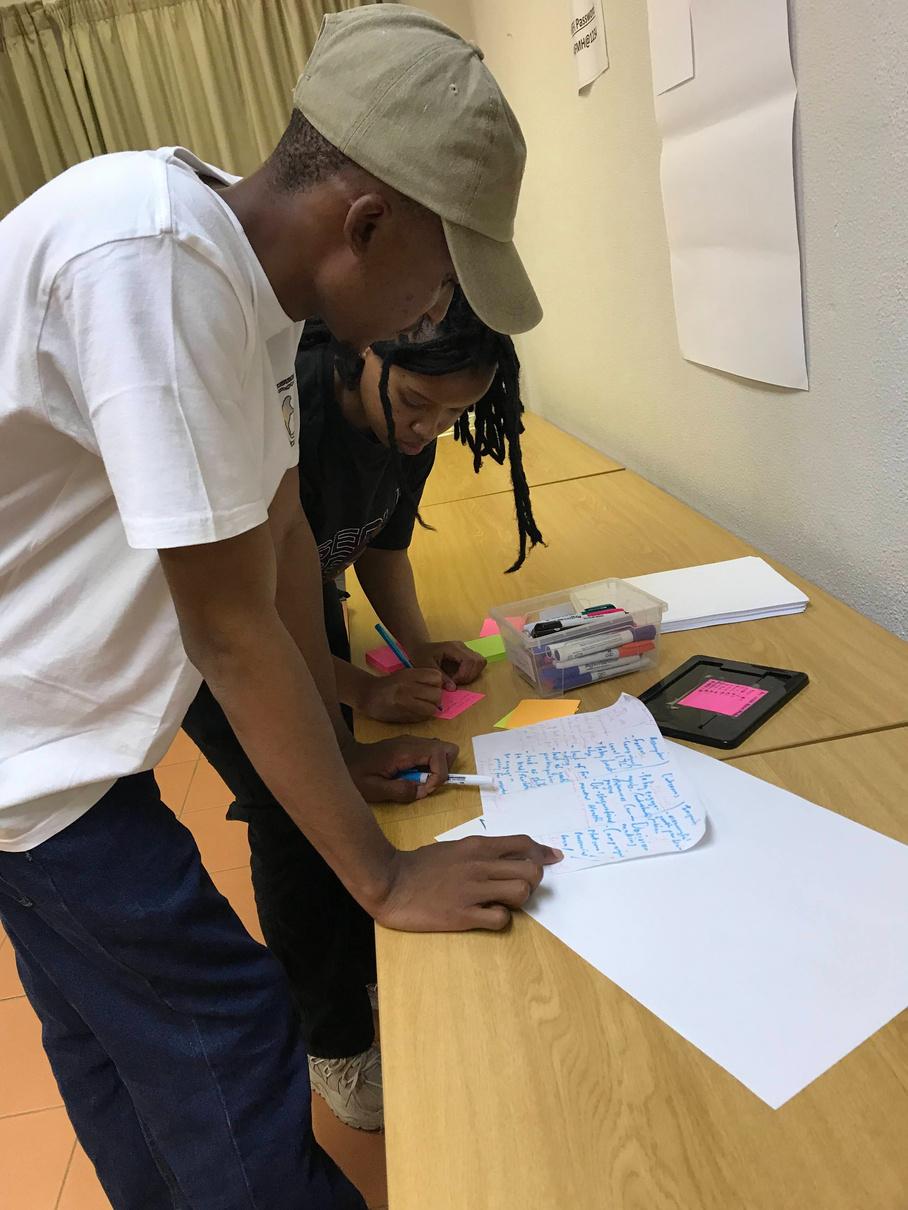
Demographics: Fourteen young people were selected from a pool of 92 applicants Members were from Cape Town, Pretoria and Johannesburg and had diverse backgrounds (accounting, activism, education, engineering, law, psychology, radio). The mean age was 22. Five members disclosed having a mental health condition and eight of the fourteen were female.

p g and one thee day in-person meeting. Each of the online meetings lasted for 1.5 hours. Overall meeting attendance was 94%. Barriers to attendance included personal or family emergencies, loadshedding or poor signal, work, exams, or other reasons such as personal holidaysorillhealth.

Forum members rated all the online meetings highly. Members found that the speakers interacted and listened to them (average rating 4.81/5), found the content was important to them (average rating 4.84/5) and found the content helpful (4.89/5).



Below outlines the topic of each meeting. For a more detailed description of the monthly content, please refer to Appendix 1. Item 4 includes two online social meets (6 Dec 2023 & 10 Jan 2024). Item 5.4 “Awareness campaign check-ins” includes 3 online meets (14, 21, 28 Feb 2024).
1.1
1.2
Getting to know each other, forum logistics, mental health
Mental health advocacy, your mental health as an advocate
1.3
1.4
2.1
Mental health policy
Mental health advocacy in practice
Mental health systems globally
2.2 Youth and mental health research
2.3
Mental health systems in South Africa
2.4
Framing your key ask
This session widened my thinking and understanding of what mental health is.
I enjoyed how the guest speaker took us through his mental health advocacy journey, it was inspirational and eye opening
I learnt that we have to hold our leaders accountable to the commitments that they have made in the policies that have been published and agreed upon
The session was very insightful and eyeopening. I loved how practical it was and how we addressed the unfiltered nature of advocacy
It was so interesting getting to learn about mental health systems and how the optimal mix of services pyramid works. A great session!
I liked the unpacking of the findings from the Child Gauge 2021/2022 on how important the child's environment is healthly and safe.
I enjoyed being able to hear directly from government officials. It makes all the work in the forum feel more real and impactful.
I learned that knowing what you are asking for from leaders is important
Today's session was pivotal in putting into application what we have been learning and talking about into practice
Storytelling in mental health is a big passion of mine, so this session was like a dream come true!
Again, some stellar practical tips for our mental health campaigns
This session was absolutely essential in helping us navigate social media, especially for the campaigns
was very
I liked how today was all about hearing our opinions and what we want for the future of the forum
It was good to just have a recap about what we did in the previous months just to have a little reminder of how far we ' ve got
This session was a great one. It was fun
Forum members organised campaigns to raise awareness about mental health issues in their community. Topics included: teen suicide prevention, substance use, and stigma reduction. Members conducted in-person events (6), digital (5), and hybrid campaigns (1). The images below capture moments from the February and March 2024 awareness campaigns. After the campaigns, members compiled impact statements through a reflection exercise.
I collaborated with another organisation for the school outreach (about 60-85 children engaged). On my social media analytics I had 150+ impressions and the posts had reached 2900+ people in 15 days. On my canvassing I managed to distribute about 70 researchinformed flyers on topics such as teen suicide prevention, how to help someone with chronic stress and what is mental health.

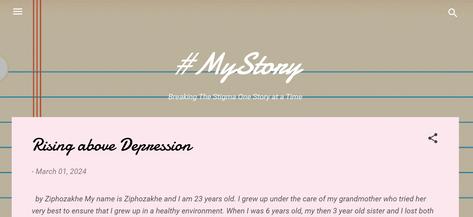
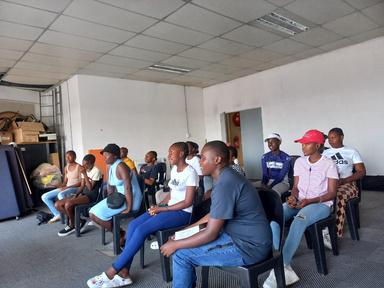


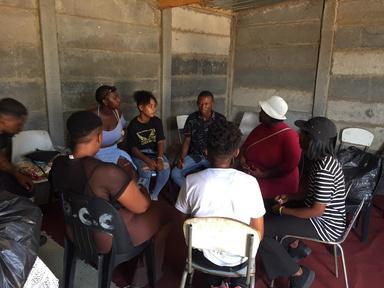


Overall forum members described the forum as an intentional, engaging, youthfriendly, nurturing space that supported members and facilitated their growth as youth mental health advocates.
“I loved being able to talk about mental health with like-minded individuals The forum has some pretty inspiring young people and I am grateful to have been selected among them. I like how people were able to voice their opinions and we were able to exchange conflicting views freely, and respectfully.”
“The engagement was also kept very well - it’ s so easy to become bored or disengaged during long meetings but through interactive conversations and activities, this was very well avoided.”
“I learnt ALOT! I think what I took most from our sessions where how much I can learn from others, not only the speakers but forum members. I’ m amazed at how much knowledge and practical advice I got.”
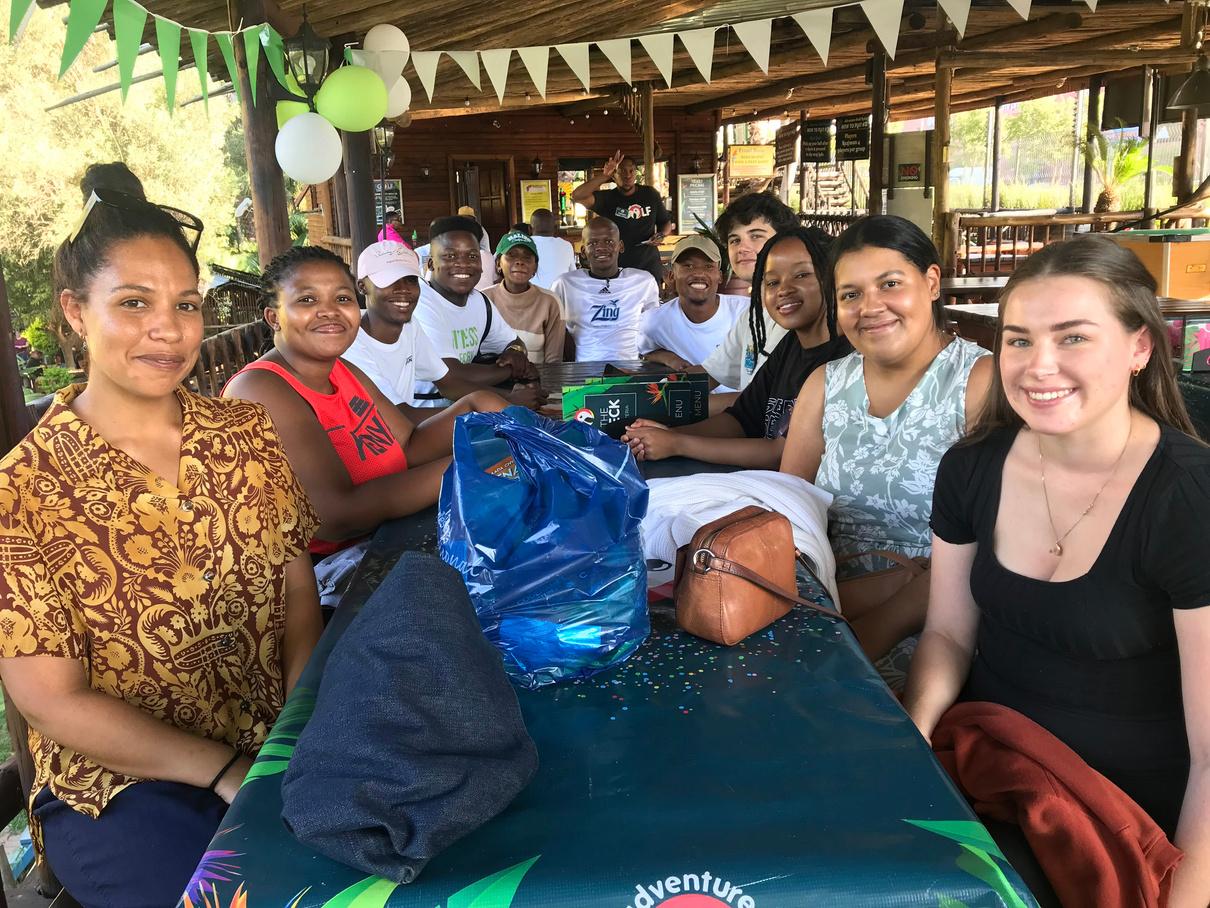

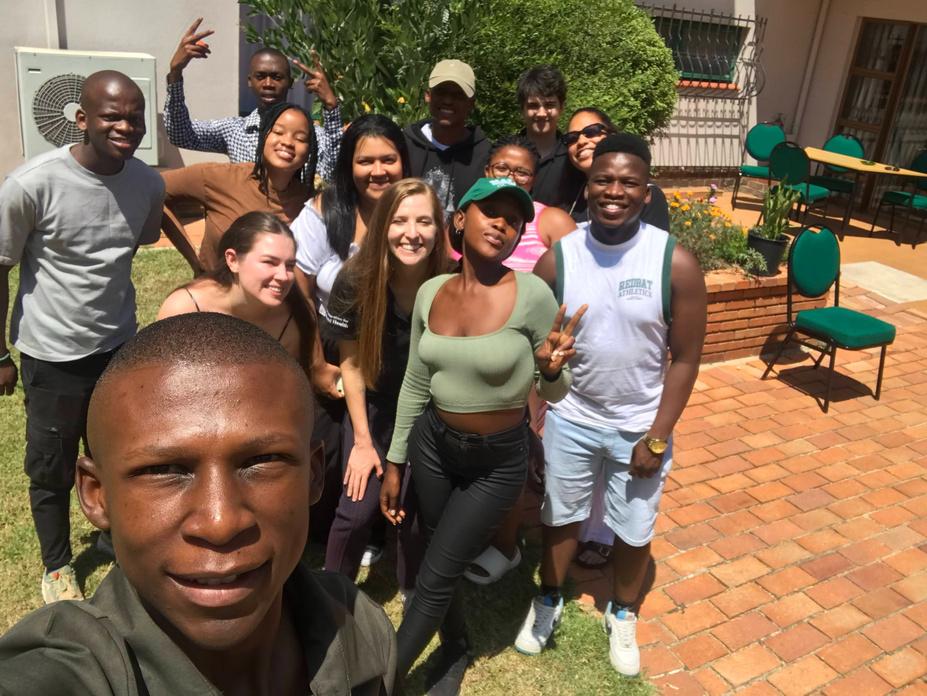

Three key themes describe the im the forum on the members:
Gained understanding of men health, advocacy and mental h South Africa.
Gained skills, including for adv and awareness raising, timemanagement, evaluation, pub speaking and organisation.
Increased senseofworth to id a youth mental health advoca South Africa.
The forum was educational and I've learnt a lot about the mental health field and being a mental health advocate. I loved the information that was shared with us and how it has equipped us to be mental health advocates.

Being a part of the forum means that I can finally fully operate in mental health advocacy conversations and be afforded the chance to serve people.

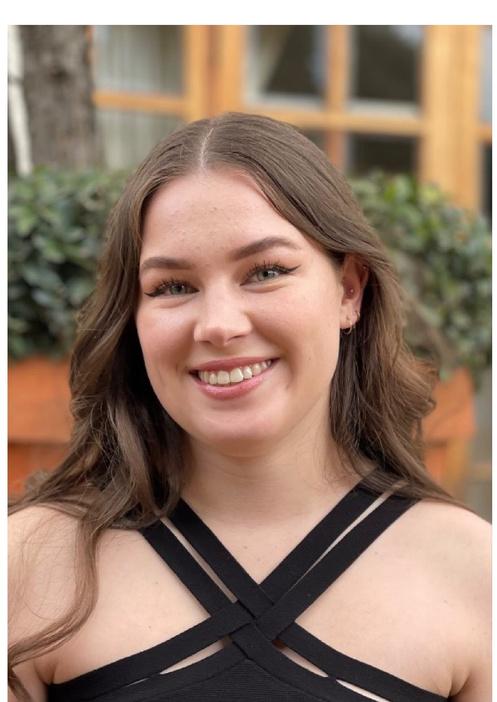
NowthatIaman SAFMHYouth Forumalumna,I planoncontinuing withdigital advocacy,using theresources SAFMHprovided throughoutthe forumtohelpme.
MichelaThornsisa22yearold mentalhealthadvocatefrom Johannesburg,SouthAfrica.Her livedexperiencewithmentalillhealthalongwithhereducationled hertoco-foundamentalhealth societyattheUniversityofPretoria in2023—withthegoalofspreading mentalhealthawarenessinthe universityandonsocialmedia,and beinganadditionalmentalhealth resourcetostudents.Herinterestin mentalhealthamongadolescents andyoungadultsdrewhertowards theopportunitytoplantheSAFMH’s YouthForum,andultimately,to becomingamemberofthepilot forum.
Aftersixmonthsofbelongingtothe forum,SAFMH,guestspeakersfrom manymentalhealthorganisations andgovernmentmembershave helpedMichelagaininsightinto SouthAfricanpolicies,their implementation,awarenessof nationwideresources,advocacy strategies,andhowtotruly dismantlethestigmaaround mentalhealthsystematically.
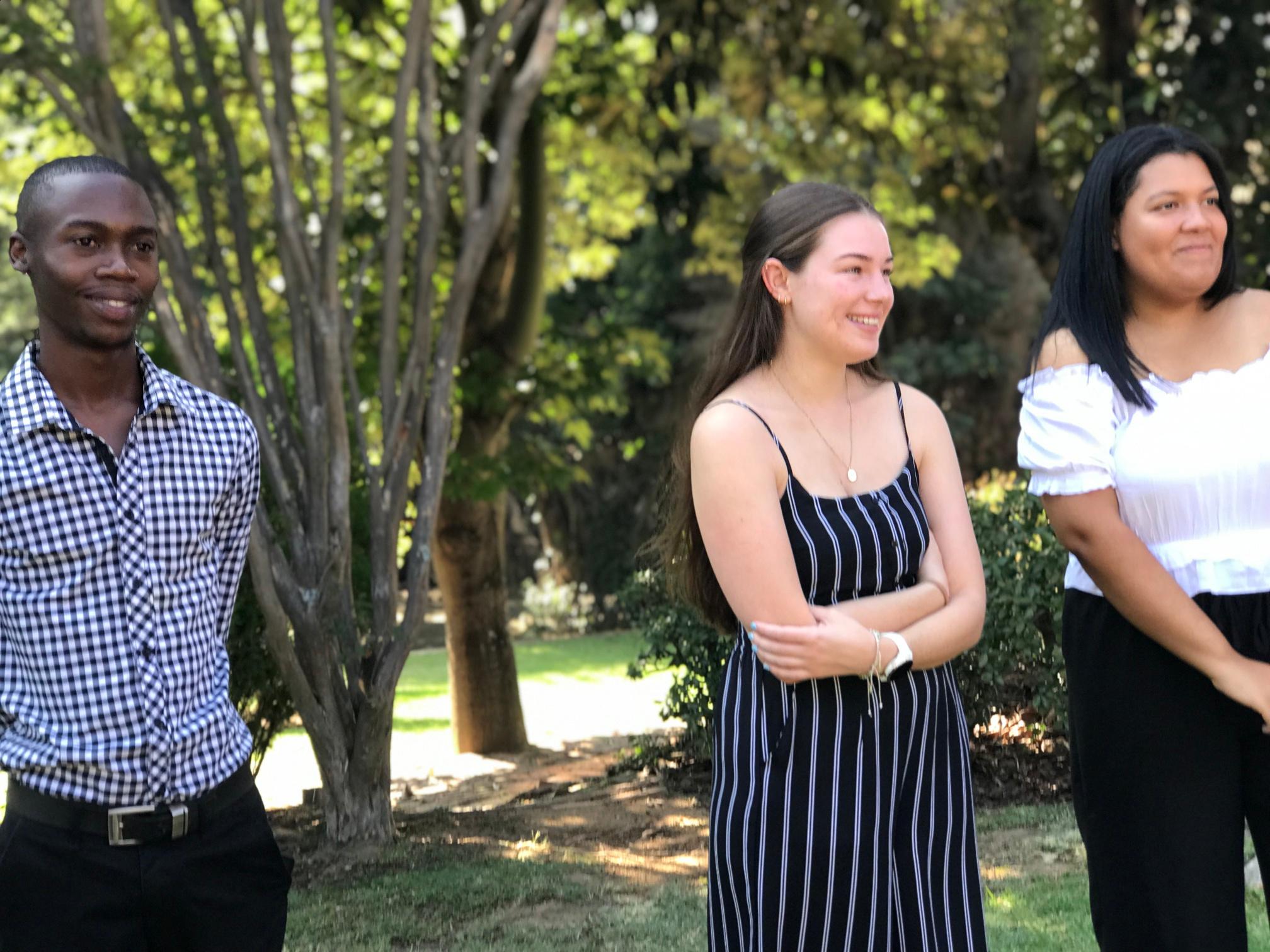
Members from this first forum iteration would like to stillmeetregularly to work on structured advocacy activities in 2024/2025. SAFMH should arrange the logistics for these meetings and oversee the outputs.
This was a helpful offering but should be better utilised for future forum meets and take-home activities. Forum members should also advise what the thematic groups should focus on.
Future iterations should have an in-personmeeting attheforum'sstart to build team cohesion ahead of the online meetings. Members shared that this will help tackle challenges, e.g. imposter syndrome.
Mentoring was deemed important to maintain, but SAFMHshouldinitiatemoreregularcheck-ins with members, add some extra structure (e.g. set weekly mentoring slots).
To retain forum members, moreexposureto networkingandprofessionalgrowthopportunities is important. Networking and stakeholder mapping should be a part of the forum's content.

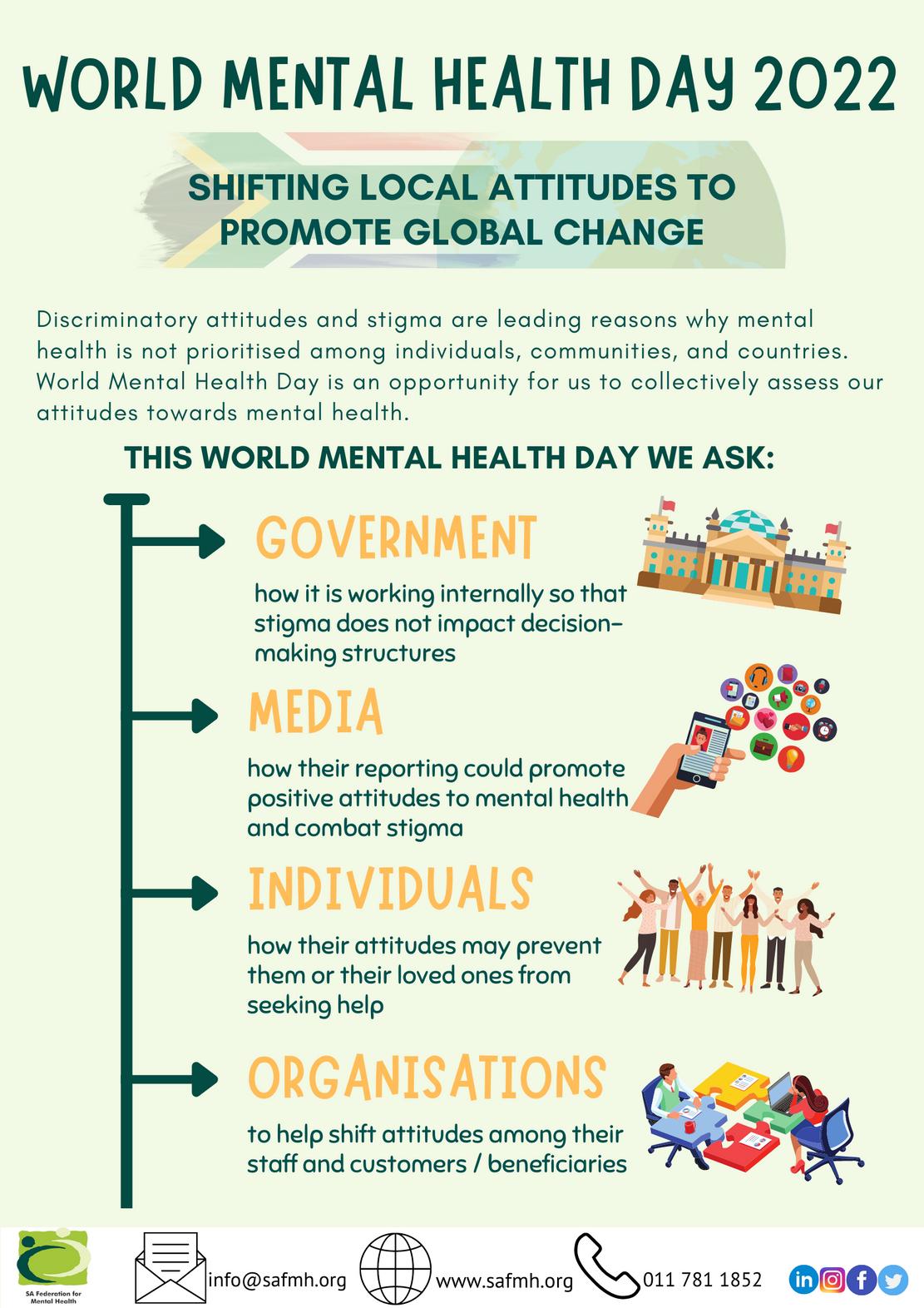

Overview: We start off this month by exploring mental health and how to look after your mental health as a youth advocate. We then discuss SAFMH's approach to mental health advocacy and the key policies related to mental health in South Africa.
Activities:
Outcomes:
Identify ways to look after yourself as a youth mental health advocate
Read the National Mental Health Policy Framework 2023 - 2030
Work in groups to discuss how the Mental Health Policy addresses your thematic focus area
By the end of this first month forum members should feel comfortable talking about mental health, mental health conditions, and key mental health policies as advocates. Members should have gained practical tips for navigating advocacy with the national Government.
Overview: This month we will focus on population-level mental health systems, resourcing and services. We explore how mental health functions at a national and district level in South Africa and review local research on youth mental health. A “Key Asks” document is introduced as an effective advocacy tool.
Activities:
Outcomes:
Join and interact with a global mental health online community
Advise on how to meaningfully include youth in youth mental health research processes
Work in your thematic groups to develop a “Key Asks” document
By the end of October, forum members should be able to understand mental health systems and opportunities local and global advocacy. Members should have advised on how young people can be meaningfully involved in mental health research and developed a “Key Asks” document within their thematic group for decision-makers.
Overview: This month will aim to provide an in-depth look at what communications for advocacy means, with examples shared. We will focus on ways to share infomation about mental health creatively, as well as unpack using traditional media and digital media for advocacy.
Activities:
Outcomes:
Working in groups to identity key audiences
Find a positive and negative media story about mental health and think about the differences
Design a social media post in support of your thematic group
By the end of November, forum members should have a good understanding of what advocacy communications means and how they can leverage both traditional and digital media to share their advocacy messages.
We have had a busy few months. We'll spend December unwinding from the year. We’ll take a mental health break from 6 Dec 2023 - 10 Jan 2024. Try to do lots of your self-care activities during this time (and maybe find some new ones!). January will involve recapping what we have discussed thus far and providing an intro to advocacy campaigns. 4.DECEMBER 2023 &
Overview: This month will focus on campaigning - an action that is targeted at a wider audience you want to influence to get their support. This helps in drawing the attention of decision-makers.
Activities:
Evaluating SAFMH’s awareness campaigns and providing feedback. Working in groups to run an awareness campaign over 3 weeks
Outcomes: By the end of February, forum members would have shared their insights and feedback on SAMFH’s awareness campaigns. They will also have run an awareness campaign.
Overview: Wrapping up the forum, we will unpack what happens ‘after advocacy’, how to continue to be a sustainable advocate and how to care for yourself during this time.
Activities:
Guest speakers will share their experience in the ‘after advocacy’ stage, when they have completed their advocacy project or finished their event, or campaign.
Outcomes: By the end of March, forum members will have a thorough understanding of what happens ‘after advocacy’ with real life examples shared. They will also be presented with their certificates for completing the training.

Results from the “In person meeting” planning session:


Results from the “In person meeting” planning session:

